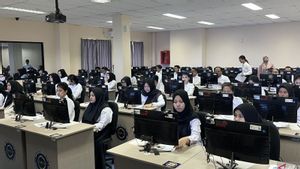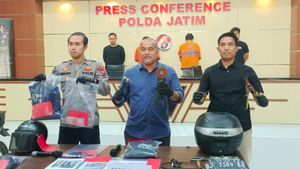JAKARTA - Kaspersky experts conducted large-scale research on the resilience of 193 million passwords, which were compromised by infostealers and available on the darknet, against gross force attacks and smart guessing attacks.
Based on the results of the study, 45 percent or as many as 87 million passwords from all the passwords analyzed were predictable by the fraudster in one minute.
In addition, 14 percent (27 million) passwords can be guessed within one minute to one hour. Meanwhile, the predictable passwords in one hour to one day amount to 15 million or about 8 percent.
Furthermore, as many as 6 and 8 percent of other passwords can be guessed by cybercriminals by consuming one day to one month each, and one month to one year.
On the other hand, experts identify that there are only 23 percent or 44 million passwords that are resistant, so it takes more than 1 year to break into them.
In addition, most of the passwords examined (57 percent) contain words from the dictionary, thereby reducing the power of the password significantly.
Among the most popular vocabularies, some groups can be distinguished:
SEE ALSO:
"Unknowingly, humans create very human' passwords, which means they contain words from the dictionary in their original language, such as displaying names and numbers. etc. Even combinations that seem strong are rarely really random, so they are predictable with algorithms," said Yulyya Novikova, Head of Digital Footprint Intelligence at Kaspersky.
Therefore, the most appropriate solution is to create truly random passwords using modern and reliable password managers.
The English, Chinese, Japanese, Arabic, and French versions are automatically generated by the AI. So there may still be inaccuracies in translating, please always see Indonesian as our main language. (system supported by DigitalSiber.id)

















